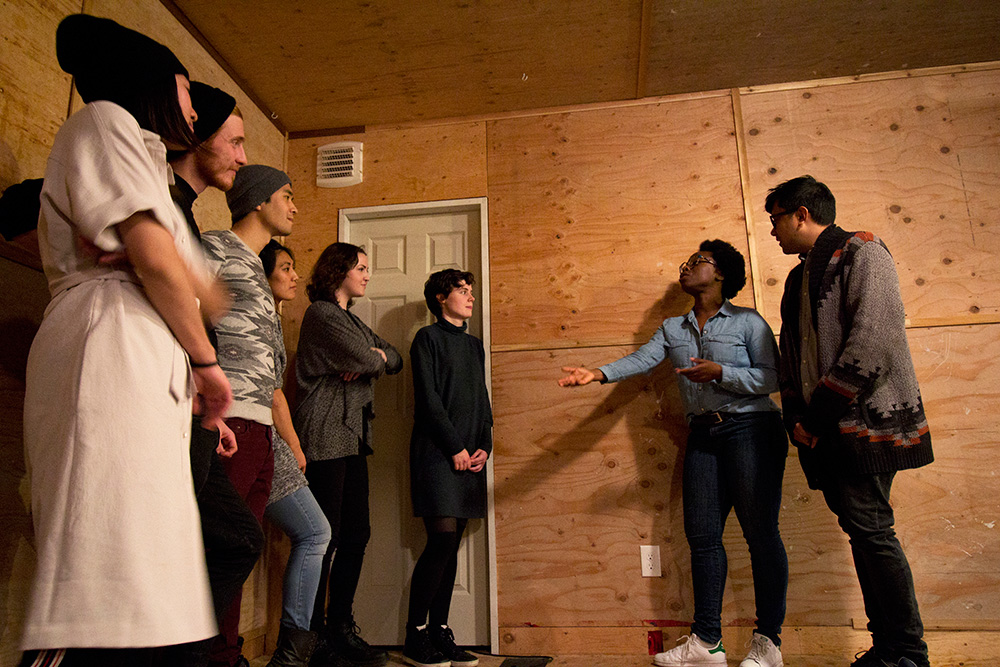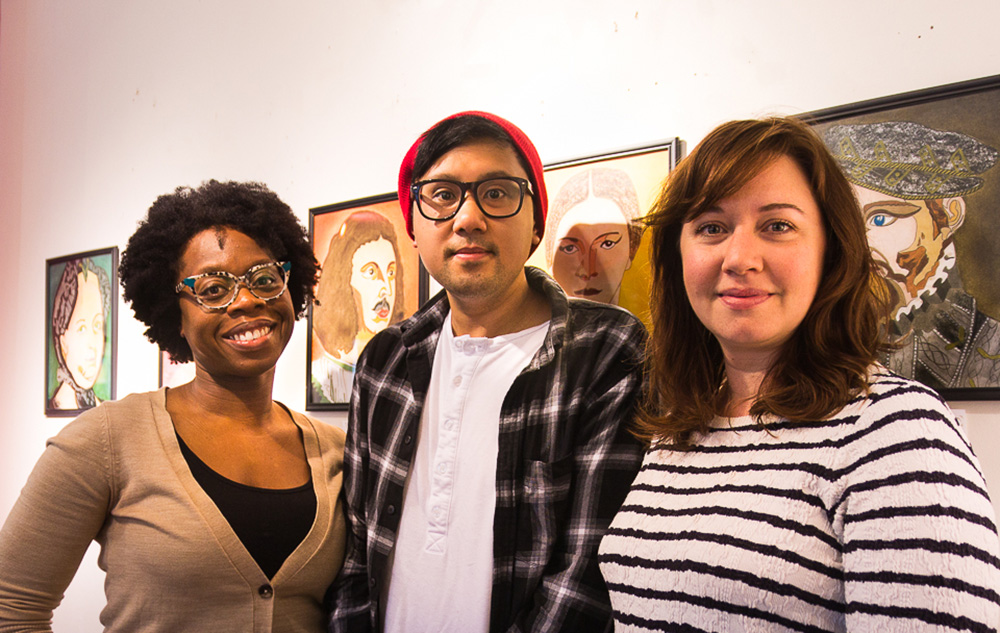To an outsider, comedy — whether that’s sketch and improv performances, standup, acting or writing — seems like a self-starting career. Take some classes, write a show, or try your hand at an open mic — you’ll need talent and drive, but your skin colour, gender, sexuality or physical abilities shouldn’t matter. Right?
And yet the vast majority of people in comedy are men, most of them presenting as both straight and white. Why?
“For me it’s basically lack of representation,” said improv actor and coach Ese Atawo. Now based in Vancouver, Atawo, whose parents came to Canada from Nigeria, started studying improv at Toronto’s The Second City where she was the only non-white person — and often the only woman — in the room.
“If you don’t see yourself represented in any field you want to do, the likelihood of you doing it is reduced tremendously,” she said. “Unless you have that strong will.”
Vancouver’s Blind Tiger Comedy improv and sketch school, started by hometown improv heroes The Sunday Service, is trying to level the playing field for underrepresented comedians like Atawo by offering eight diversity scholarships per semester to cover the cost of one 20-hour class ($250) for women, differently abled people, lesbian, gay, bisexual, trans, two spirited and other underrepresented sexualities and gender identities, and people of colour.
Five scholarships have been awarded this semester, and the school is still accepting applications for the other three.
“We’re already asking people to take a risk by saying ‘come do a thing that is out of your comfort zone, and also... you might be the only person like you in this class,’” said Caitlin Howden, Blind Tiger co-founder and faculty member.
“So why should that person also have to take a financial risk?”
Students who started Blind Tiger classes this month will also learn from new faculty members Atawo and Ronald Dario, who are also Blind Tiger alumni. While the fact both performers are people of colour adds to the diversity of the nearly all white faculty, Howden says Atawo and Dario were hired because they’re really good at what they do.
“We first and foremost need to have the best teachers in this city. That’s why people want to come and learn from us: we have people who are actually active in the scene and working really hard,” said Howden.
“And these two people are people that people talk about, want to see perform, want to perform with them, and [Atawo and Dario] are very driven. To have these two people on our faculty is a huge get for us.”
It’s all part of Blind Tiger’s efforts to enrich the local comedy scene by making it more welcoming for a broad array of performers. Last fall the school held its first Women Trans Femme Night, a free drop-in improv/sketch class and jam session. It’s planning another next month for people of colour.

Blind Tiger follows the lead of comedy schools like Toronto’s Bad Dog Theatre Company, which offers 16 inclusion scholarships, and Edmonton’s Rapid Fire Theatre company, which offers five diversity scholarships.
But while this marks Blind Tiger’s first effort to attract underrepresented people to their classes, Dario has already benefited from Blind Tiger’s diverse faculty and students.
“It’s made me a better performer and better storyteller,” he said, citing his work with women, particularly Atawo, whose strict religious Nigerian-Canadian upbringing was so different from his own as a second generation Filipino-Canadian.
“When Ese and I are playing on stage and she’s doing a very specific voice or posture, I know what character she’s doing. I can respect and honour what she wants to do, rather than trying to make it a... thing that I’m more familiar with.”
Working with Blind Tiger’s faculty, too, encouraged him to tackle his own background and experiences in his comedy.
“I wrote a sketch about a ghost who didn’t want people to wear sheets over their heads because it looks bad on ghosts and people don’t want to be associated with that. And I was very nervous about my first foray into racial-based political commentary. But [Howden] was very, very supportive of it,” he said.
“And she really helped to make me feel good about pursuing that.”
Feedback from other comedians, particularly people of colour, has been incredibly positive because seeing non-white people take the stage or lead the class broadens people’s concept of who can do comedy, Dario said. “It’s made a lot of people more excited about what their futures in comedy in Vancouver could be.”
“And my father thinks I’m a legit teacher now,” Atawo added. “I just told him I’m teaching now. I never told him comedy.” ![]()
Read more: Politics, Gender + Sexuality
















Tyee Commenting Guidelines
Comments that violate guidelines risk being deleted, and violations may result in a temporary or permanent user ban. Maintain the spirit of good conversation to stay in the discussion.
*Please note The Tyee is not a forum for spreading misinformation about COVID-19, denying its existence or minimizing its risk to public health.
Do:
Do not: